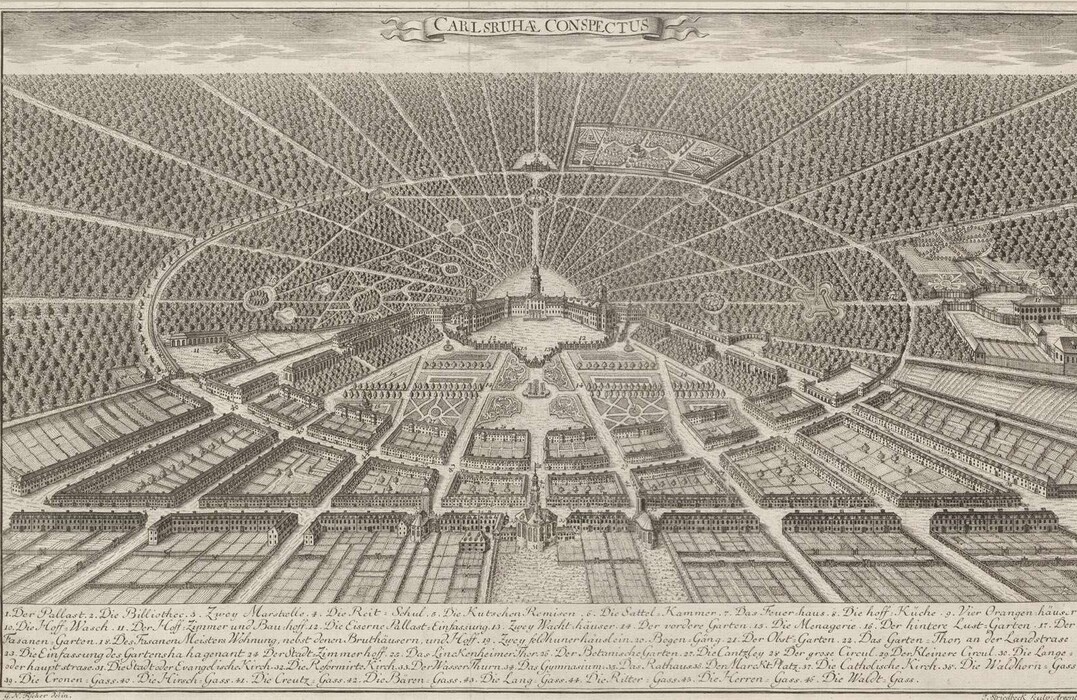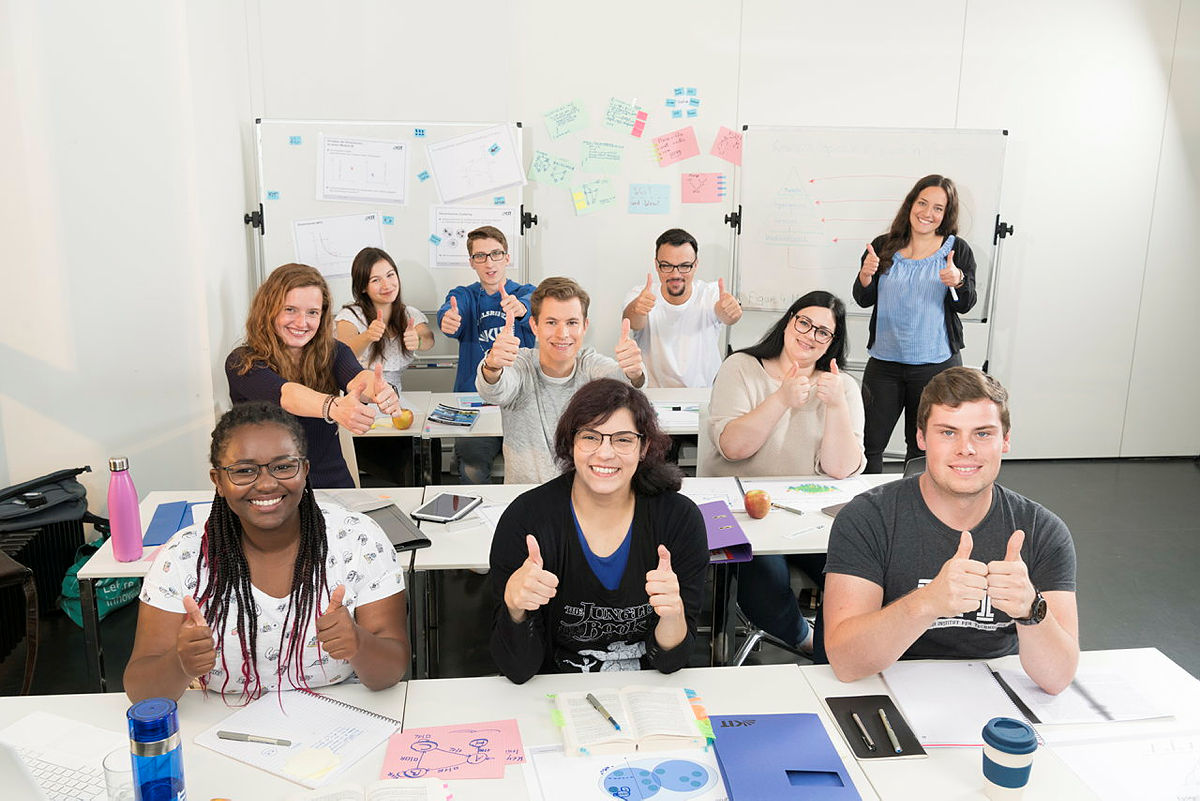Welcome to the Department of History
About Us
As a branch of the Institute of Technology Futures, we contribute research results of technology and environmental history to the social debates on future issues. We define Technology Futures as the ways in which societies communicate about the future uses of technology - whether linguistically, with images, or by emotive persuasion. The historical perspective can thus uncover long-term continuities or ruptures in communication about future technological developments.
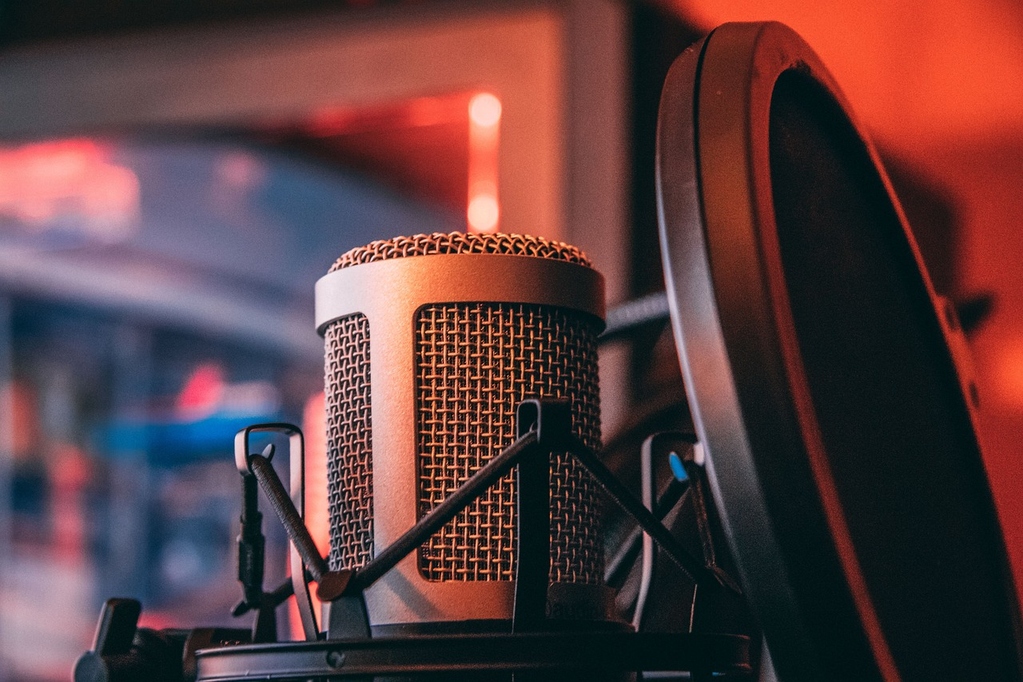
Rolf-Ulrich Kunze speaks in an interview with Dr. Stefan Fuchs in the Campus Report's "Forum" series on the topic of "Technofascism?" at the start of the Trump presidency.
Hear more by clicking here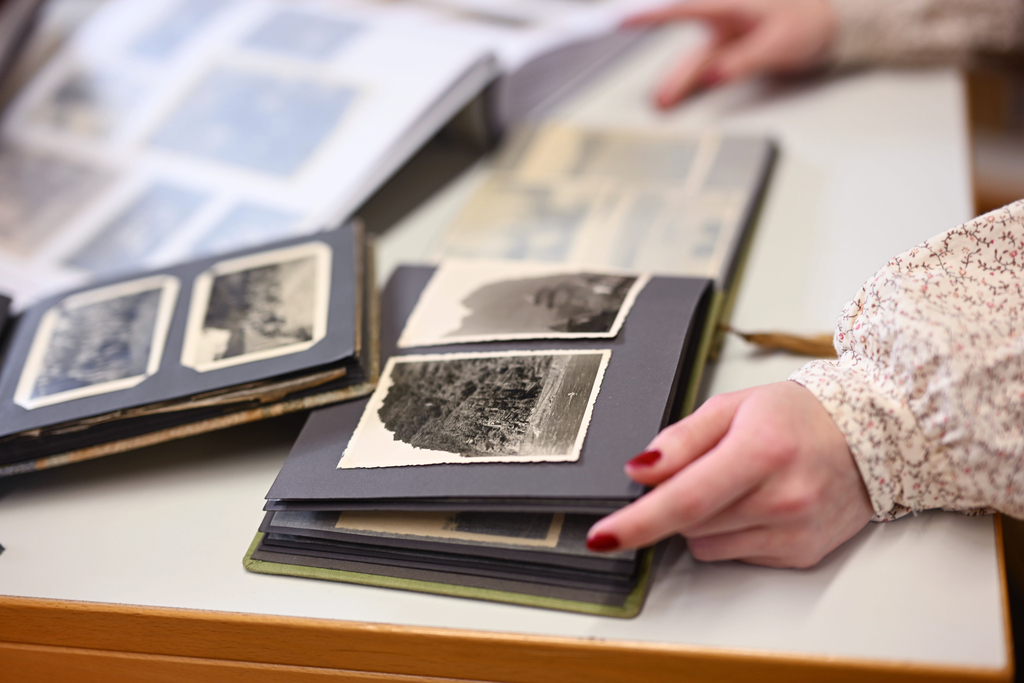
How can sources such as private photo albums contribute to historical research? What insight do they offer into everyday culture and interaction with contemporary history? Sophia Merkel had the opportunity to talk to Marco Krefting from dpa about these and similar questions. The article resulting from this conversation was published in various daily newspapers. In another article on the subject, Rolf-Ulrich Kunze and Sophia Merkel provide information on important questions of family research.
Read more by clicking here
Would you like to know what the EUKLID degree program is all about and what studying history and philosophy looks like? Then you've come to the right place! Building 30.91, Room 012, 11:00-11:30 h with Silke Zimmer-Merkle. Why not also listen to the event on the elective subject Technology Assessment, which takes place directly afterwards: "Sex Robots, Intimacy, and Ethics: A Case from the Field of Technology Assessment". Ethical sex work with robots - is it possible? In the taster lecture, the elective subject Technology Assessment will give a small taste of the diverse topics of TA research. The lecture language is English, 11:35-12:25 h with Bettina-Johanna Krings and Giovanni Frigo.
Read more by clicking here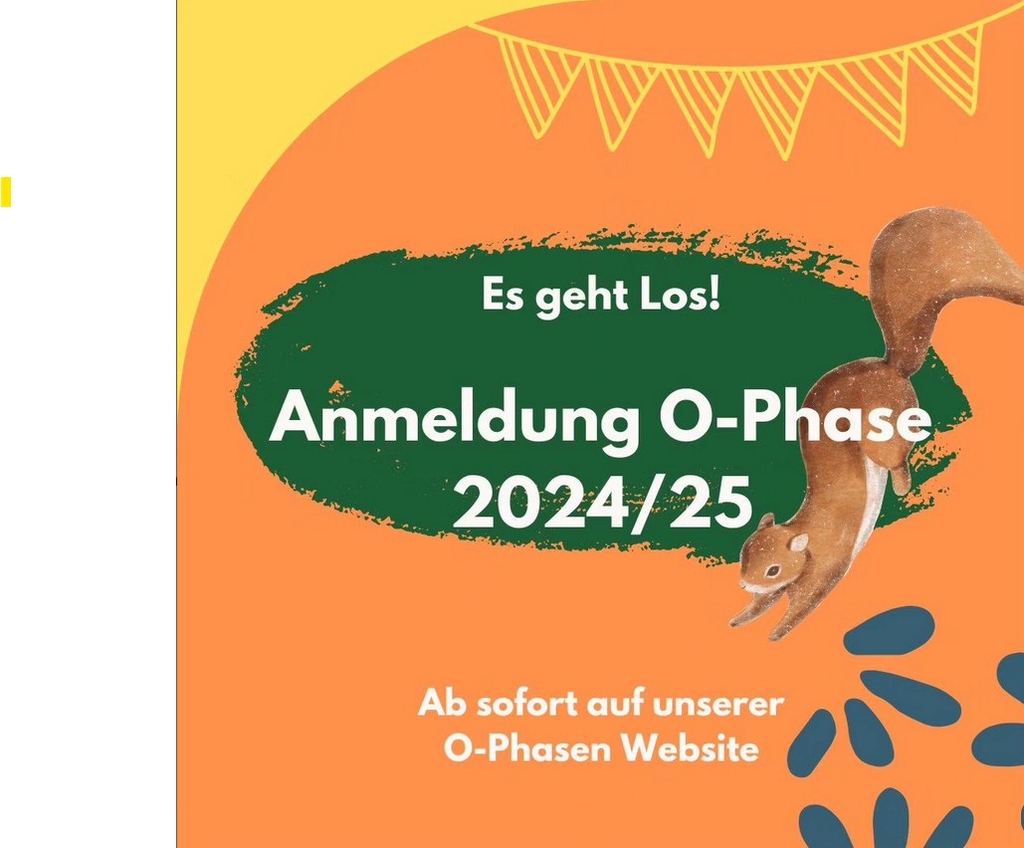
During the orientation phase one week before the start of the semester, the GeistSoz student council will provide you with all the important information about commencing your studies.
Read more by clicking here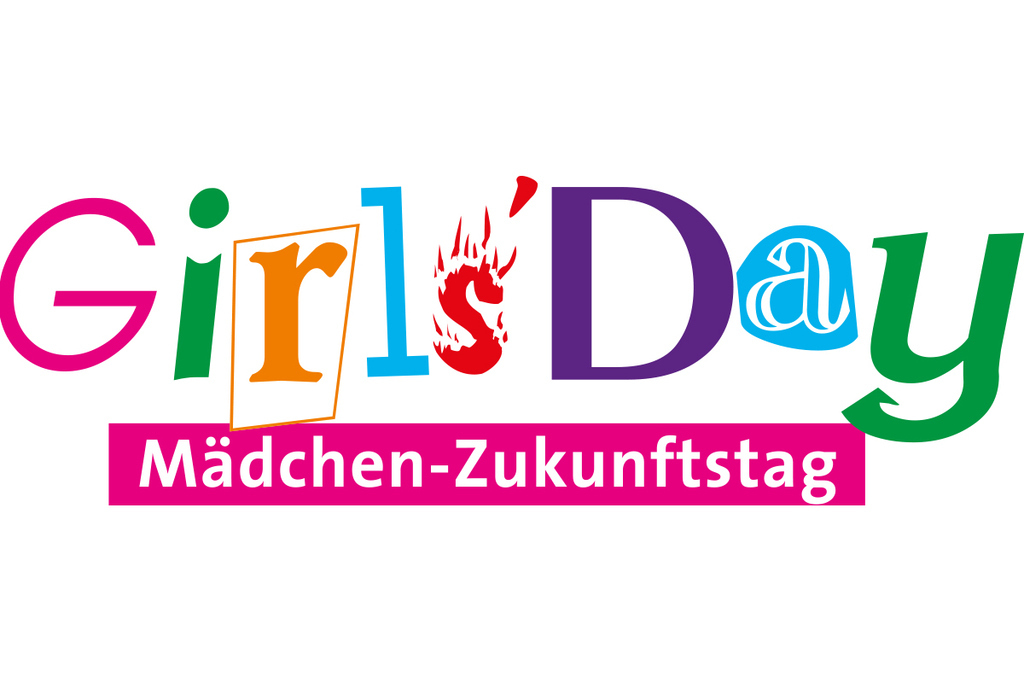
The "Girls' Day - Girls' Future Day" is a nationwide career orientation day for girls* from the 5th grade onwards. Girls' Day gives schoolgirls the opportunity to gain insights into professional fields that are rarely chosen by women - fields in the natural sciences, technology and humanities. The next Girls' Day at KIT will take place on April 03, 2025. Further information on Girls' Day 2025 can be found under the following link.
Read more by clicking here
In the coming summer semester, there will again be numerous new seminars and lectures in the EUKLID program. These can be accessed at Campus Management, on the page Courses of the Department of History as well as via ILIAS .
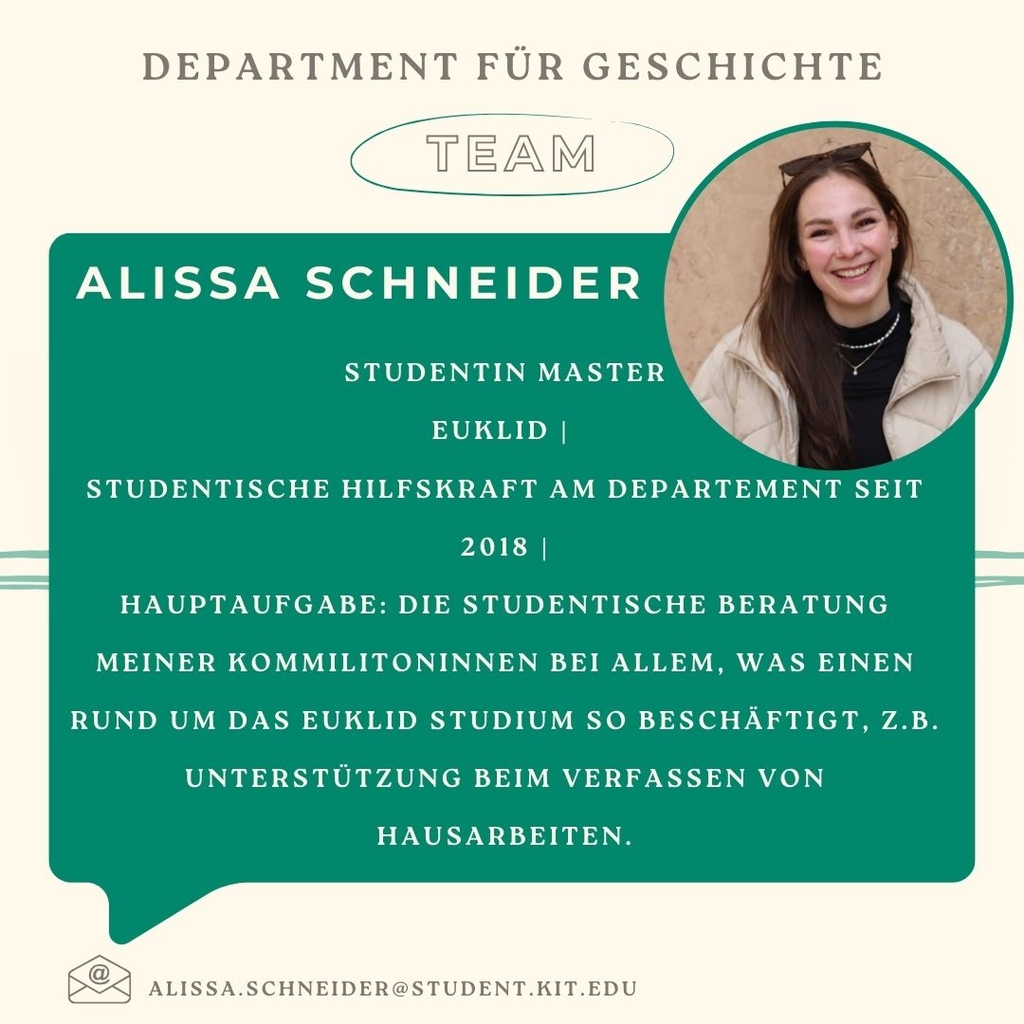
You can find us on Instagram @kitgeschichte. Among other things, we post news from the Department of History, introduce the members of our team in teaching and the administration and point out important events and dates.
More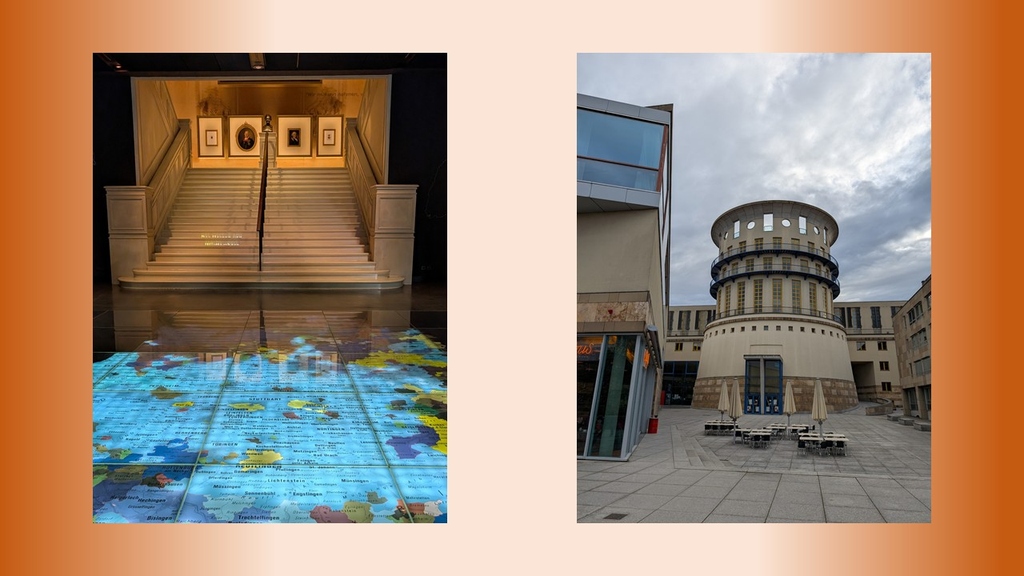
On January 25, 2025, Andrea Acle-Kreysing with her seminar visited the Haus der Geschichte in Stuttgart. The focus was on objects in the permanent exhibition that symbolize migration in different eras. The "hunger bread", which recalled the emigration during the drought in the early 19th century, as well as stories of political exiles from Baden-Württemberg after 1848 and experiences of flight and expulsion during the Nazi era up to the 1950s were impressive.
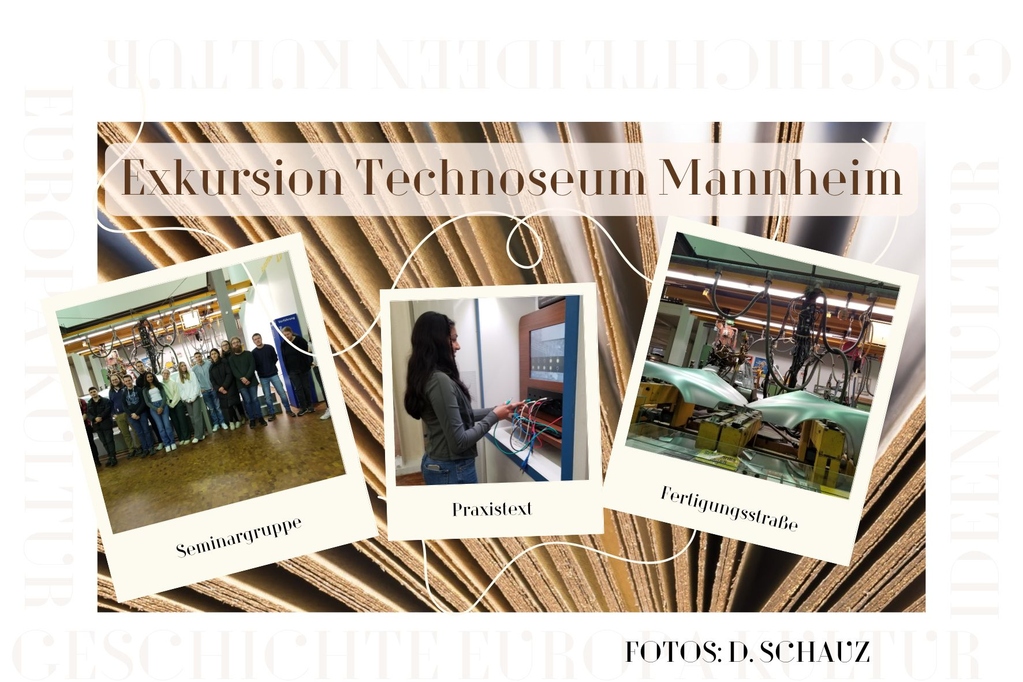
As part of the seminar "Rationalization, automation and digitalization. Technology and work in the 20th century" by Désirée Schauz, students gained impressive insights into the history of the development of technology, media and energy during an excursion to the Technoseum in Mannheim.
Link_more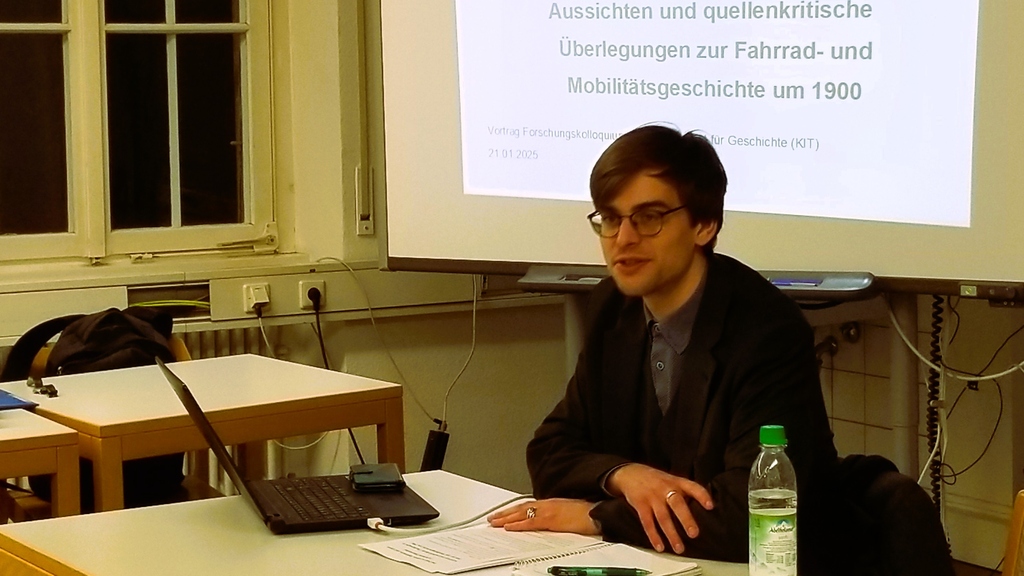
On January 21,Elias Blüml (University of Augsburg) presented the results of his published master's thesis on early bicycle history in Augsburg at the research colloquium. In an exciting lecture, he traced the local negotiation processes surrounding mobility spaces and their manifestation in legal and administrative regulations.
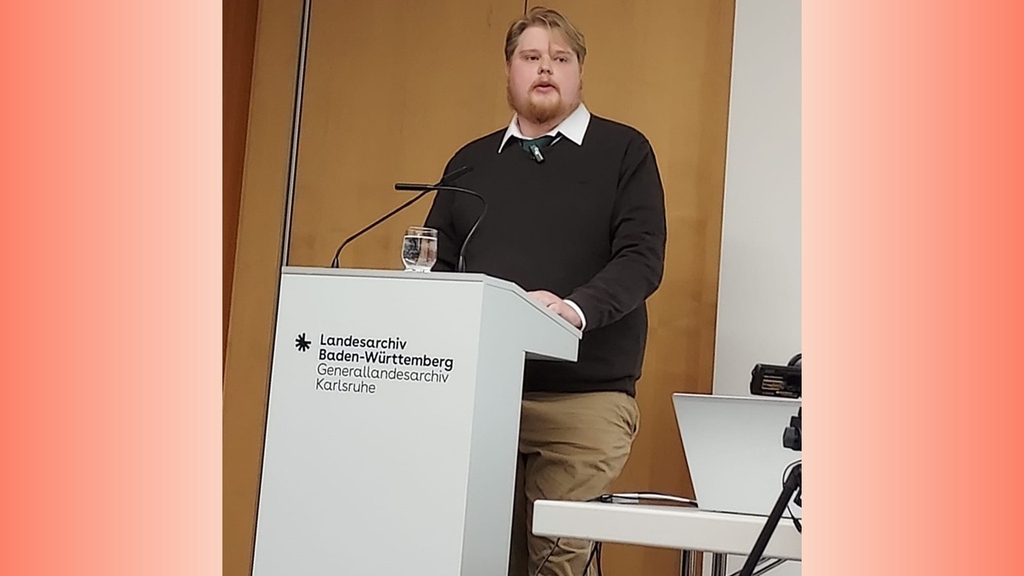
In the lecture series of the AG Geschichtliche Landeskunde am Oberrhein at the Generallandesarchiv Karlsruhe, Martin Ullmann spoke on January 17 on the topic: "Ein badischer Horst Wessel? The posthumous reception of SA man Paul Billet in the Karlsruhe press 1931-1945". The lecture shed light on the National Socialist cult of martyrdom and political debates in the press at the end of the Weimar Republic and during National Socialism. The lecture was based on research for a module examination in the MA program European Culture and History of Ideas.
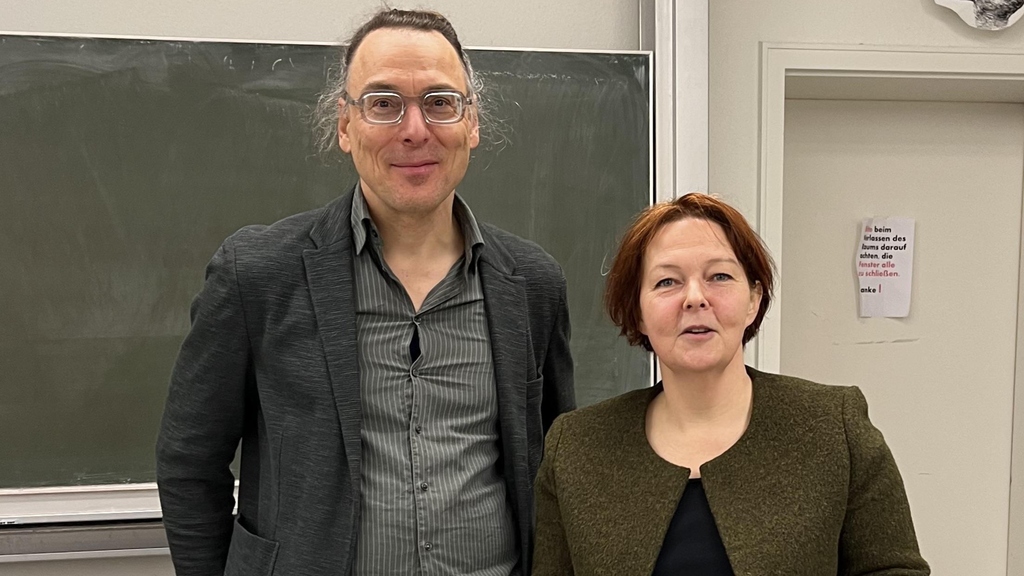
On January 14, Falko Schmieder (ZfL Berlin) was a guest at the research colloquium. He presented the project "The 20th century in basic terms. Dictionary of Historical Semantics" and inspired a lively discussion on the history of concepts, the digital humanities and the implementation of such a project.
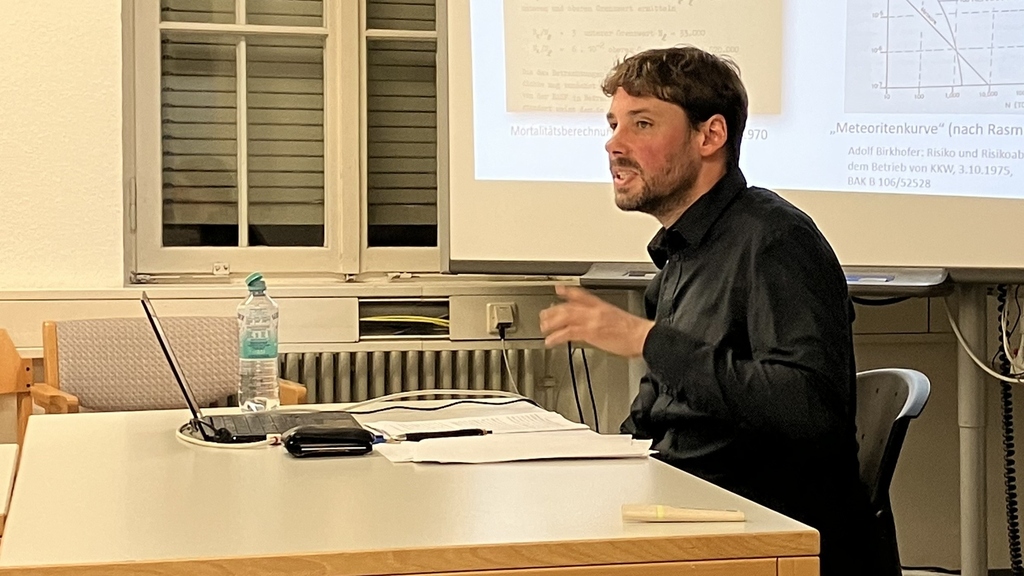
Stefan Esselborn (University of Stuttgart) enriched the program of the research colloquium on 17 December with a lecture on risk knowledge in dealing with nuclear energy in the 1960-1980s. The exciting exchange focused on the establishment and institutionalization of probabilistic risk calculation as a new field of research and business in these decades and the resulting influences.
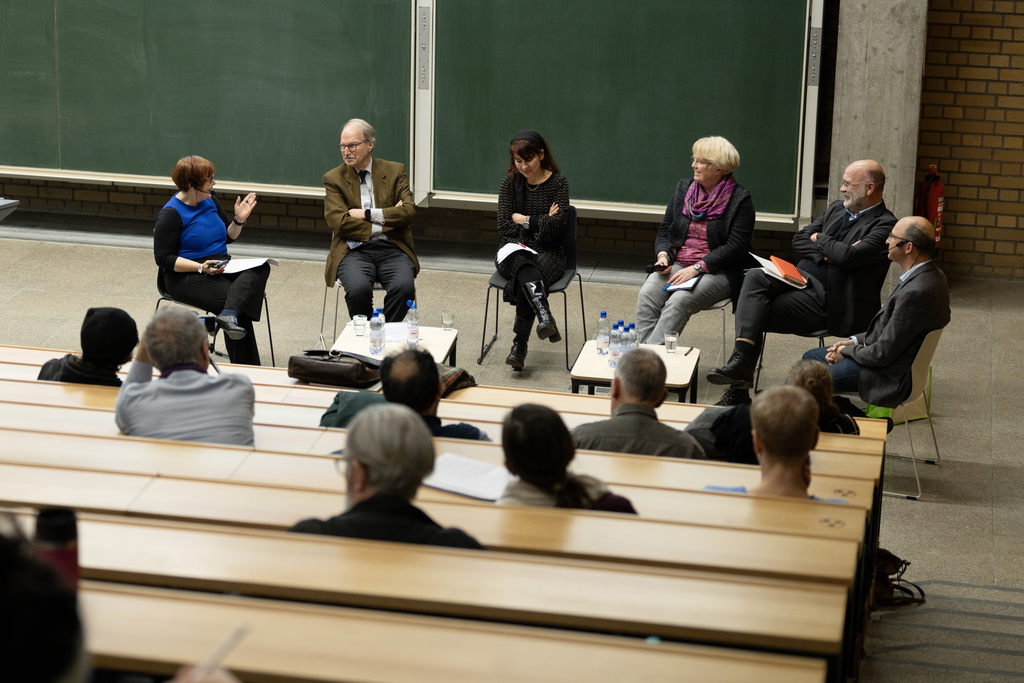
The panel discussion Between general education and reflection on technology? The past and future of the humanities at technical universities as part of the Colloquium Fundamentale deals with the relationship between the humanities and natural sciences. In the run-up to the KIT anniversary in 2025, scientists from various disciplines discussed developments, the current status and possible future roles of the humanities at technical universities. The event, moderated by Désirée Schauz and Marcus Popplow, took place on December 17, 2024.
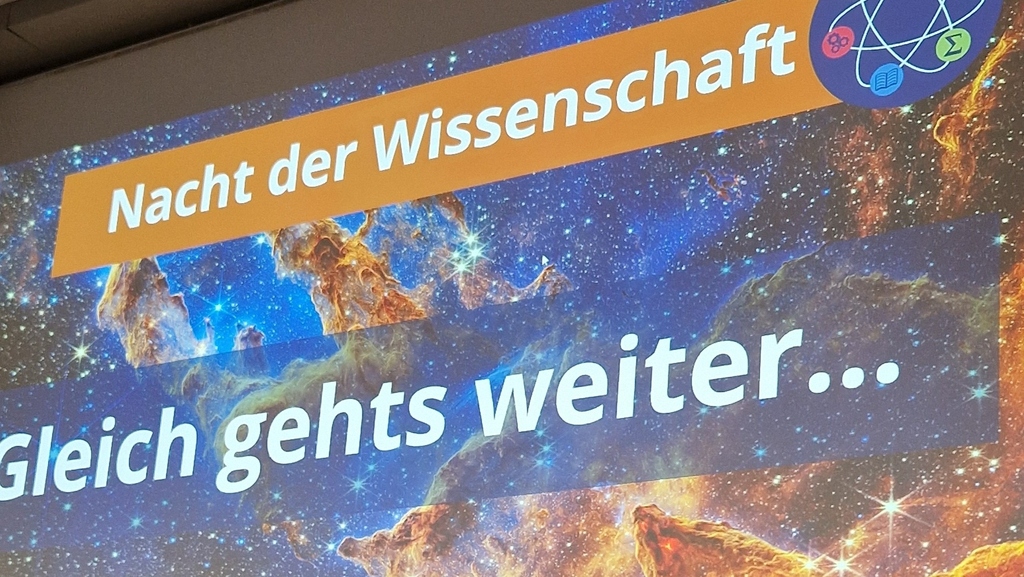
Nicole Hesse contributed to the Night of Science at KIT in November 2024 with a lecture on the history of energy. The knowledge of how today's dominant energy systems "came into the world" has largely been lost in everyday life - especially for electricity in most Western societies: it is simply always there. The lecture shed light on these processes of change through historical highlights, inviting discussion on what knowledge from energy history can do for us - not least in the transformation towards a sustainable energy supply.
Programm 2024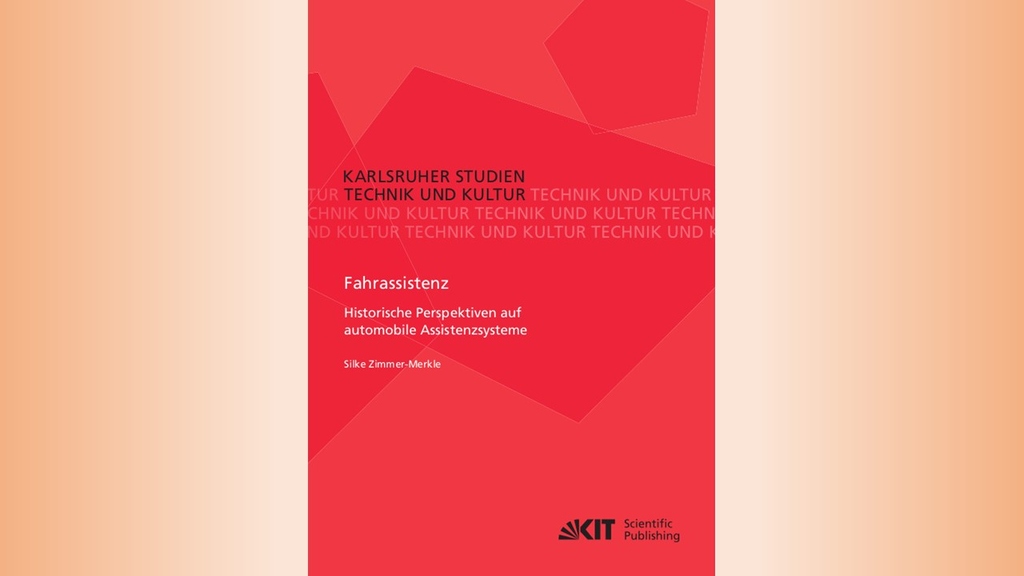
The dissertation Fahrassistenz: Historische Perspektiven auf automobile Assistenzsysteme by Silke Zimmer-Merkle examines the history of automotive assistance systems within the research fields of the history of technology and technology assessment, which is told in a broad perspective from the end of the 19th century to the present day. Since assistance systems in cars are often thought of as enabling technologies for autonomous driving and are formulated as such in the discourse, a historical investigation of this subject, which has not yet been systematically explored by historians, is an obvious step, not least in order to expand the scientific treatment of the topic to include a historical perspective.
Read more by clicking here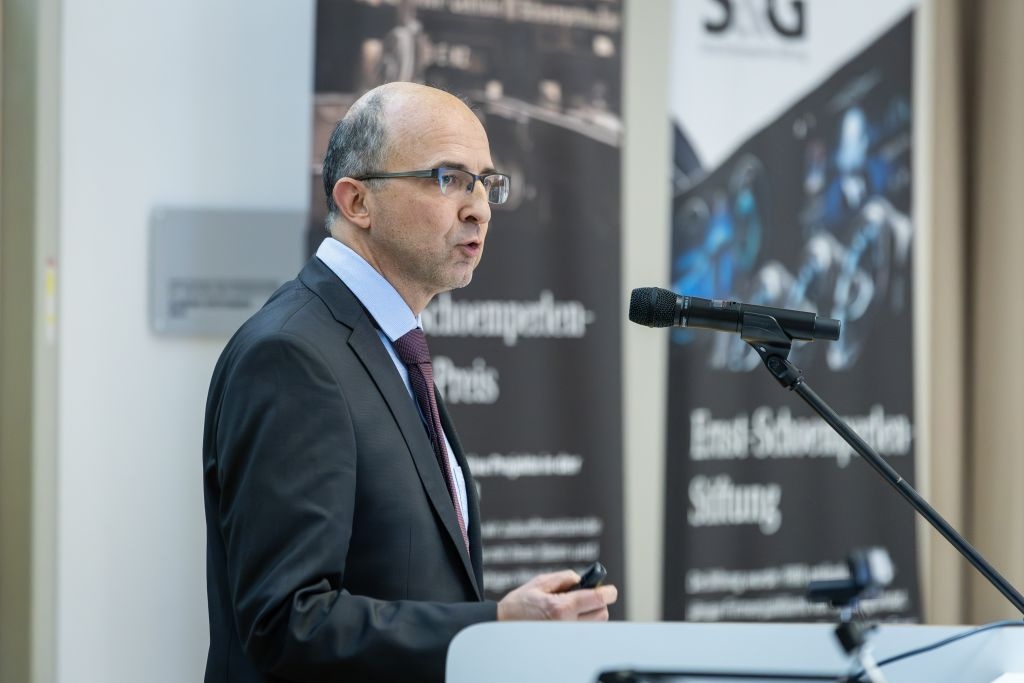
Marcus Popplow spoke on behalf of KIT at the 14th Carl Benz Memorial Lecture on November 28 on the topic: "Historical aspects of sustainable mobility of the future". Find here the program of the event.
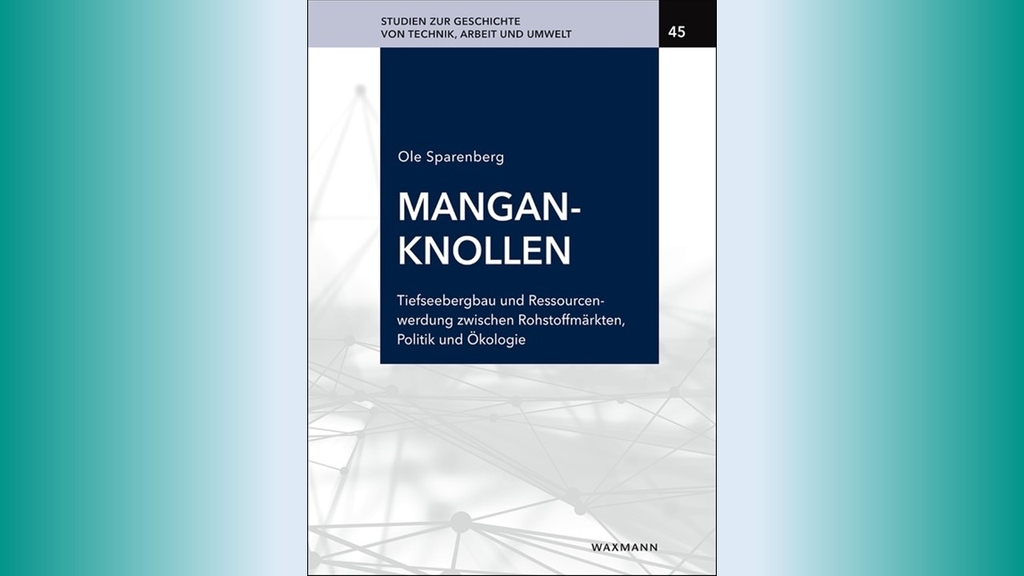
Ole Sparenberg is the first to examine the history of manganese nodules from their discovery in 1873 to the present day. This study shows why an economic interest in these minerals from the deep sea developed from the 1950s onwards, culminating in mining tests in 1978 before the projects were discontinued. It was not until the 21st century that interest in deep-sea mining revived, but today it is increasingly being met with discussions about the ecological consequences.
Read more by clicking here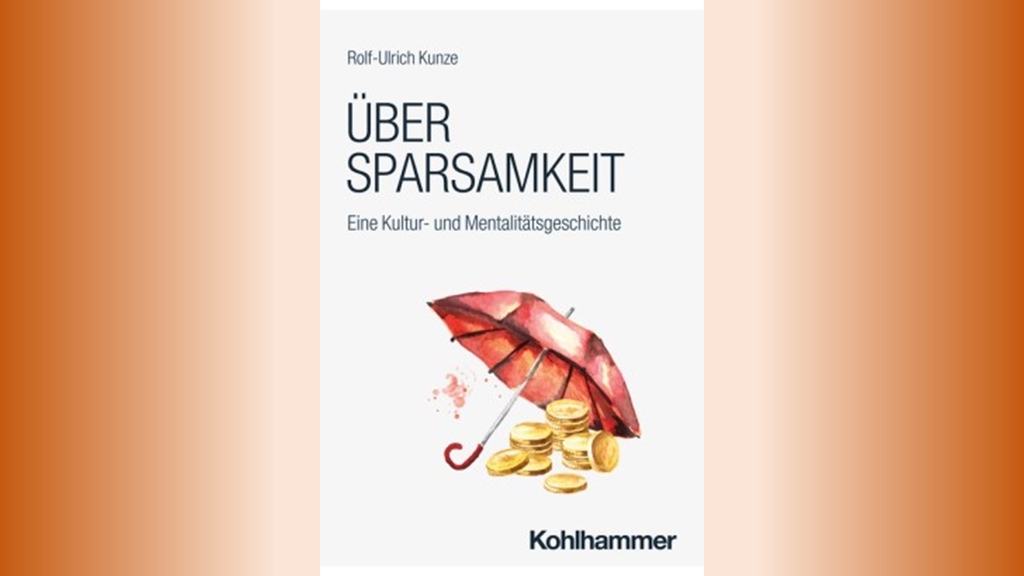
The current monograph "Über Sparsamkeit. A history of culture and mentality" by Rolf-Ulrich Kunze has been published by Kohlhammer. Using numerous sources - from cookbooks, advertising and media reports to advice literature - the book examines how ideas about thriftiness have developed in West Germany since 1950 and how they have become part of everyday life.
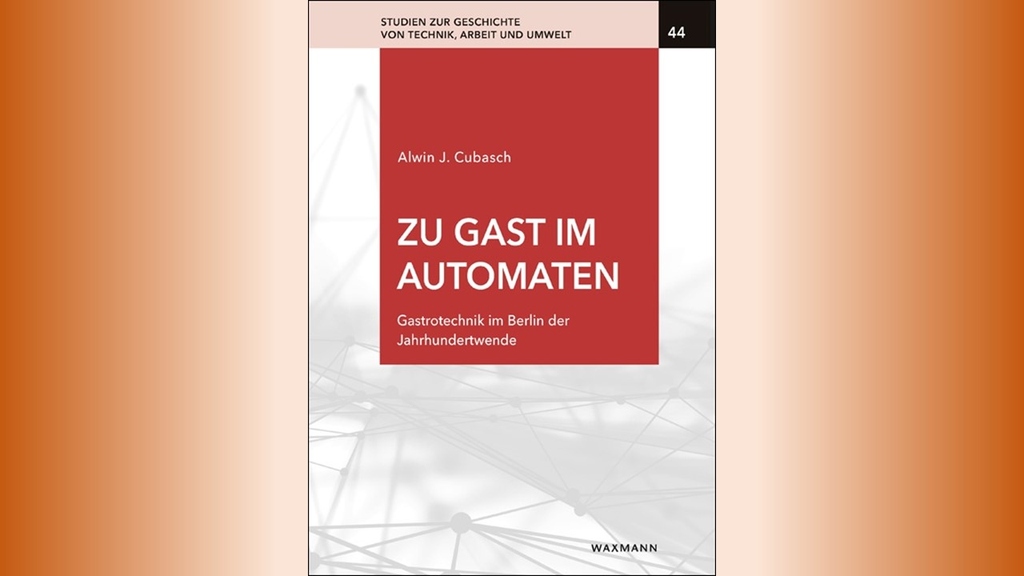
Alwin J. Cubasch's volume illuminates the rise and fall of vending machine restaurants in turn-of-the-century Berlin, shedding light on the scope and limits of technological design motivated during high modernism. The book is published in the series Studien zur Geschichte von Technik, Arbeit und Umwelt, edited by Marcus Popplow and Torsten Meyer.
More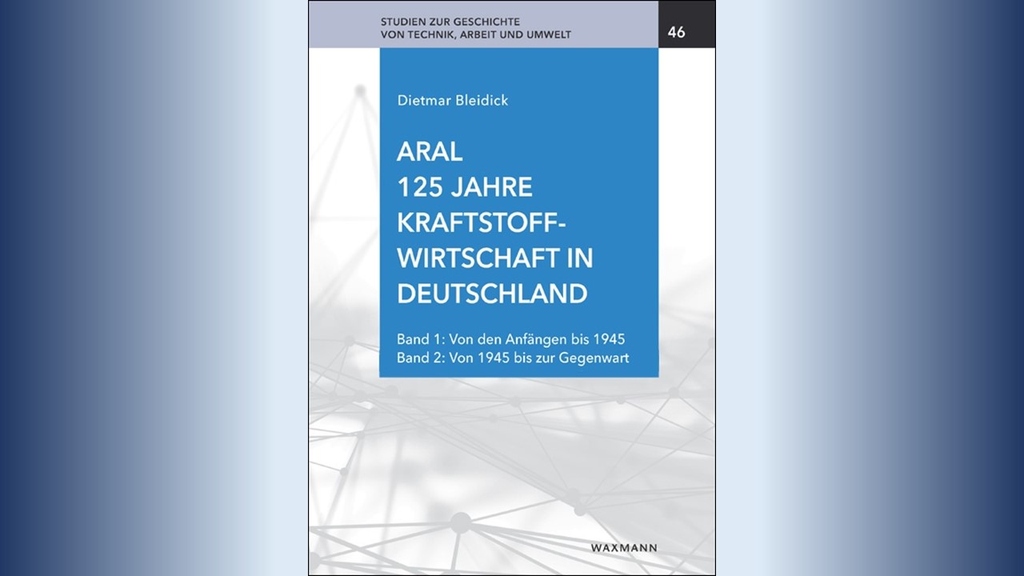
In the series Studien zur Geschichte von Technik, Arbeit und Umwelt, edited by Marcus Popplow and Torsten Meyer, the volume 46 Aral. 125 Years of the Fuel Industry in Germany by Dietmar Bleidick has been published. The two-volume edition traces the 125-year history of the industry for the first time using Aral as an example. In addition to company and product development, the filling station business and the brand, the focus is on social and political conditions, the effects of mass motorization and, last but not least, the price of fuel.
Read more by clicking here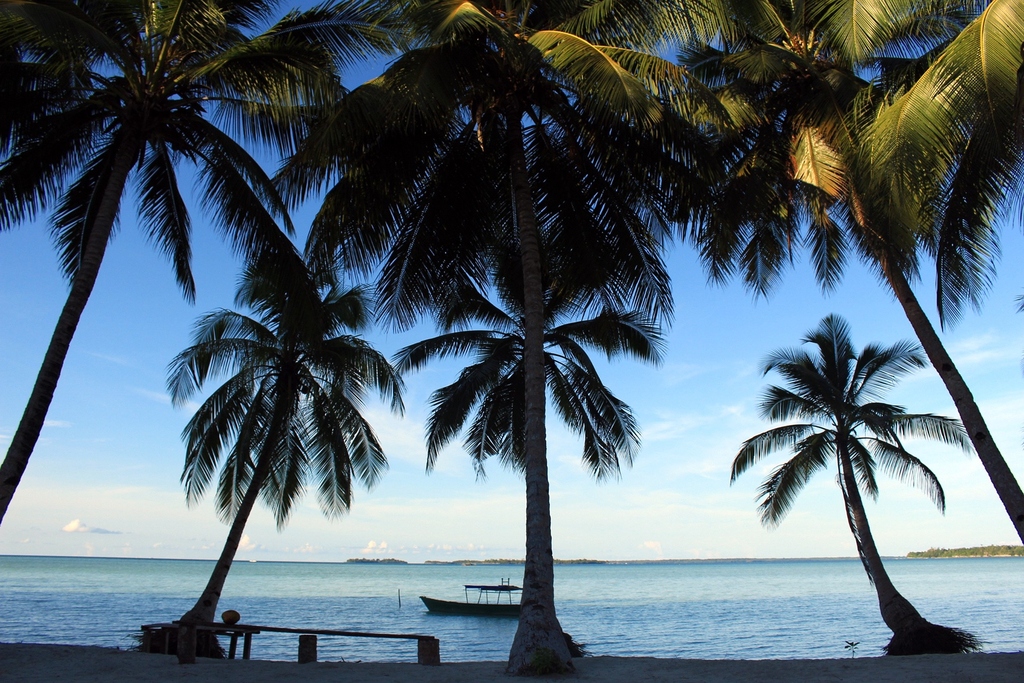
Planning to study abroad requires lead time - you can already find out about the requirements for a semester abroad next year: Information on studying overseas can be found here.
An online appointment on ERASMUS+ will take place at KIT-Internationales via ILIAS: 02.10.2024, 16:00-17:00.
The Faculty GeistSoz offers an information session on Erasmus+ on November 20 (14:00, in room 110 in the Franz-Schnabel-Haus).
You can find all important information via the following link.
Read more by clicking here